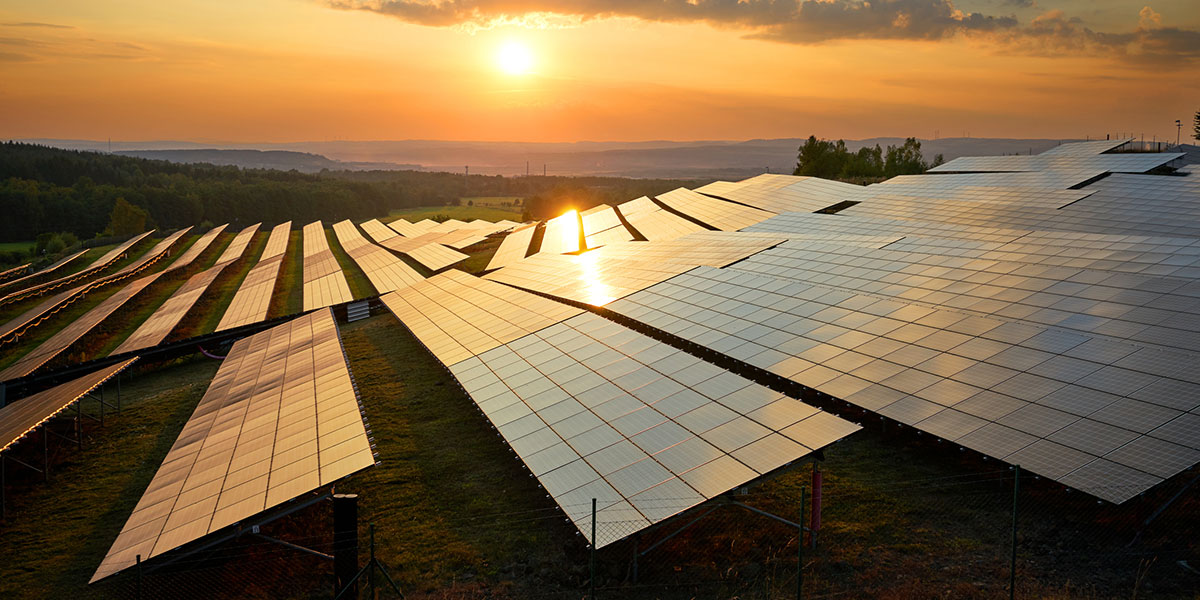It's been a rough year, on track to be the fourth-hottest ever, with a horrific wildfire season that never ends and an extreme storm season that's only just getting started. The climate crisis is no longer just a threat. It's a global reality that is costing billions of dollars and hundreds of thousands of lives every year, and it’s hitting the most vulnerable communities hardest.
Take a moment, though, and imagine what it might be like if we had a government that pulled its head out of the sand and took that reality seriously. For a start, we'd be setting ambitious yet achievable goals for reducing -- and ultimately eliminating -- climate-polluting emissions. And if we found that those goals were getting met ahead of schedule, we'd recalibrate and make them even more ambitious.
The odds of meeting any goal rise if you have a strategy. So, our hypothetical government would enact smart, economical energy policies that also supported emissions reductions. It would also be farsighted enough to plan and build the infrastructure necessary for success. That all sounds simple enough, but it demands a vision that encompasses not just the next few years (or political cycles) but decades.
Our current federal government fails on all of these counts. But at least one government in the U.S. is inching ever closer to turning the vision I just described into a reality. And last week, in spite of a stubbornly shortsighted policy on fossil fuel extraction, it made one of its biggest advances yet. I’m talking about California.
On August 28, the California State Assembly passed S.B. 100, which (once signed by Governor Brown [update: signed on 9/10/18]) will commit the state to three targets:
- 50 percent renewables by 2026
- 60 percent renewables by 2030
- 100 percent carbon-free energy by 2045
That makes California the second state (after Hawaiʻi) to set a 100 percent clean energy goal. California's previous target was to source half of its electricity from renewable sources by 2030 -- a goal that only a couple of years ago might have seemed ambitious but now looks relatively easy to meet.
It's impossible to overstate how significant a milestone it is for a state as large and influential as California, which is the fifth-largest economy in the world, to commit to 100 percent carbon-free power. Setting that target will profoundly influence everything else California does for decades to come, while adding even more momentum to the clean-energy economy not just within the Golden State but also well beyond its borders.
The new goal also dovetails nicely with the urgent need to cut the emissions of California's transportation sector, which currently is responsible for about 40 percent of the state's climate pollution. California can put more electric vehicles on the road (the state's current target is 5 million by 2030), but those cars, trucks, and buses will be only as clean as the electricity that's used to charge them. Thanks to S.B. 100, as California's electricity gets cleaner, so will its vehicles.
I called S.B. 100 a milestone because it's just one especially important marker on a journey that the state started more than a decade ago and that will likely continue for most of our lifetimes. We’ve still got a long, long way to go before this crisis can be considered solved. Even so, California deserves huge credit yet again for its steadfast leadership on clean energy and emission reductions -- and for showing that climate action and a thriving economy can go hand-in-hand. As soon as Governor Brown (or his successor) acts to begin phasing out fossil-fuel production in the state, California’s climate and energy policies really will be the perfect role model for the rest of the nation.
How quickly the rest of the nation steps up to match California's ambition, though, is largely up to us. Now is the time to tell our elected leaders everywhere and at every level, loud and clear, that we want a fossil-fuel–free world with 100 percent clean renewable energy that works for all of us.
